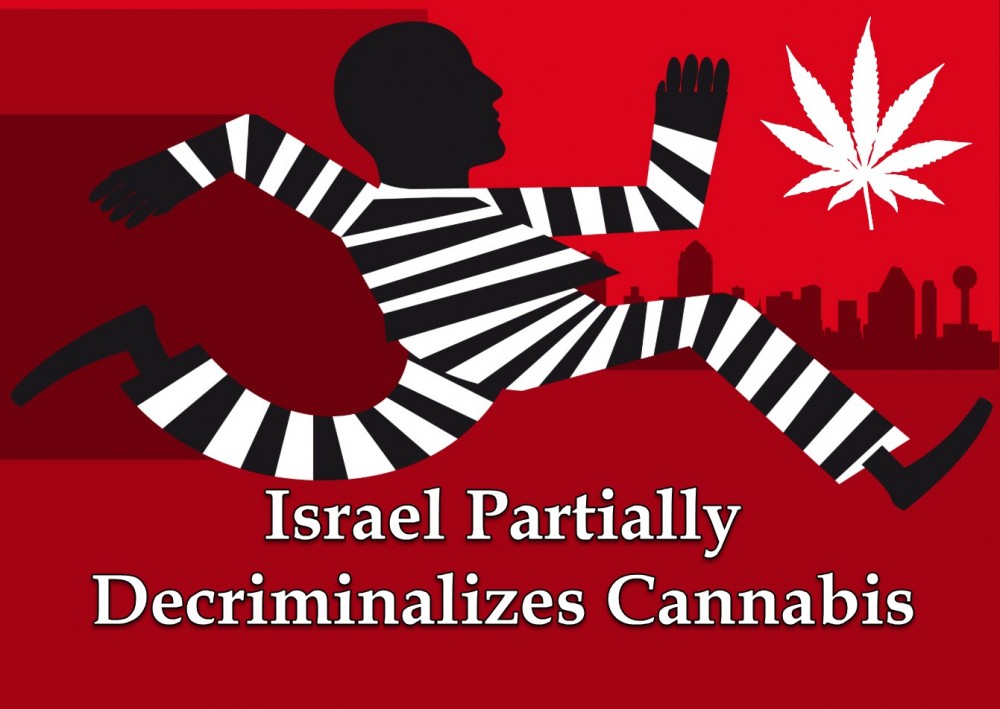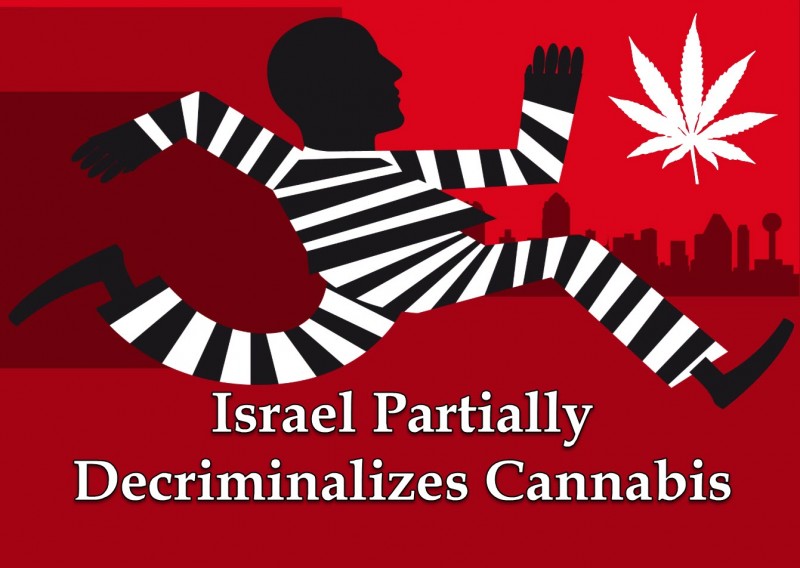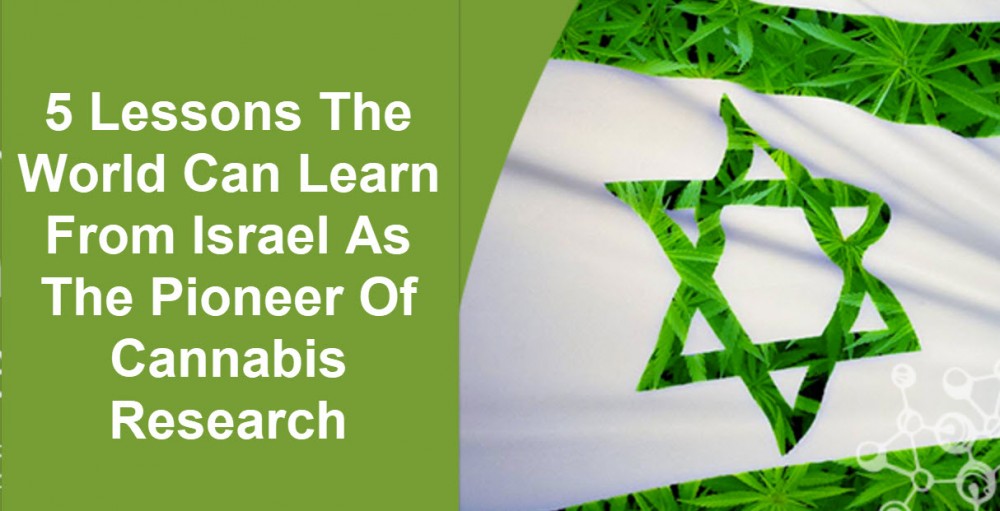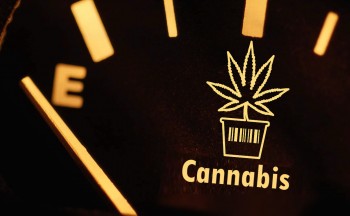Israel Partially Decriminalizes Cannabis

On Monday at midnight, Israel’s new decriminalization law finally took effect.
The law states that the consumption and possession of cannabis in small amounts, and in one’s personal home, is no longer considered an offense. In public, getting caught in possession of amounts used for personal consumption results in a fine of around $275 for the first time offense, and double this amount when caught for the second offense. If the third offense is done within 7 years, this will result in a criminal investigation or the loss of a gun or driver’s license.
Israel’s Anti-Drug Authority defines personal use as 15 grams, although the new law doesn’t state a specific amount. Citizens who already have permission from the government to possess medical cannabis are required to show their license to the police in the event that they are caught in public.
The cannabis reform, however, isn’t applicable to minors, soldiers, or citizens who have an existing criminal record. If minors are caught, they will be sent to rehabilitation programs instead of being subject to facing the criminal justice system. Additionally, with the new program, it will be up to the police whether or not they want to go after offenders after their third offense.
Israel has already allowed more doctors to legitimately write prescriptions for cannabis. Additionally, they have reduced the limits for cannabis growers, have allowed public pharmacies to sell cannabis, and have allowed its citizens to obtain cannabis with a doctor’s prescription.
History Of Israel’s Drug Reform Law
The changes all started after Public Security Ministry Director-General Rotem Peleg started a committee focused on adjusting the punishment for cannabis offenses; instead of treating people who were caught with cannabis crimes as criminals, they wanted to prioritize education. This way, there would be more efficient ways of dealing with the issue instead of prosecuting people.
Last year, Public Security Minister Gilad Erdan implemented the panel’s suggestions then by August, the Knesset gave the go signal on the reform.
For now, the changes are temporary and will be in place for the next three years. After then, they will decide based on the success of the reform if the changes will be made permanent.
That doesn’t mean to say that the new laws are without opposition. Dekel David-Ozer of the Green Leaf party created a petition opposing the reform. “In a decriminalization law, you would expect something to be annulled in previous legislation, but all this reform does is add the option of fining users. Currently, if a person is caught the first time, their case is closed due to lack of interest to the public. Under the new law, they will be fined – this means the law worsens enforcement,” he argued to the High Court of Justice.
“The reform is partially welcomed but it does an injustice to users who don’t have the means to pay the fine, and to minority groups whose abuse will continue through profiling. The police will continue to violate individual liberties without grounds. Only full legalization or regulation will bring justice to users of this magical plant and take control away from the black market and terror organizations,” says Green Leaf founder, Boaz Wechtel.
What Else To Know About Israel’s New Policy
The new laws allow the police to prioritize public spaces in Israel, so those who consume in private are not affected. Those who do end up paying fines should also know that the money will be used by the Public Security Ministry to pay for educating people about drug use and to treat addicts.
Additionally, we should keep in mind that the new laws don’t mean that Israel is legalizing cannabis. “There is a widespread error that this move constitutes legalization. Cannabis consumption is still forbidden, it’s just the enforcement process has changed,” a police source told Haaretz.
The Haaretz report also sheds light on how the authorities will be implementing the new laws. They will be using a new system that will help the police identify if the person they caught meets the requirements for administrative enforcement. It will also equip them with the knowledge to understand exactly what type of fines to impose. Furthermore, Israeli police will be given specialized training for better understanding of the issue, and local officials will also launch a public information campaign.
OTHER STORIES YOU MAY ENJOY....
ISRAEL SHIPS CANNABIS AROUND THE WORLD, CLICK HERE.







